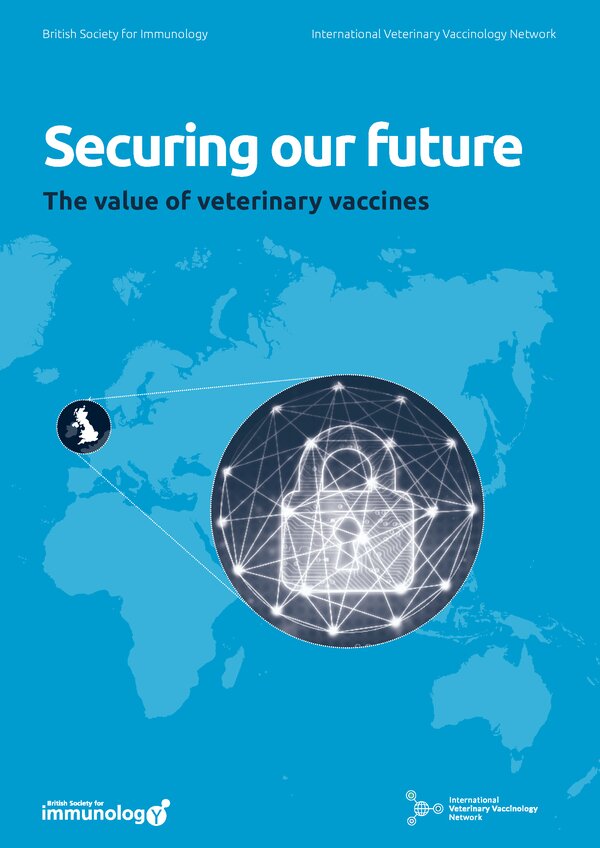Urgent strategic investment in veterinary vaccinology is crucial to secure global health, wealth and security
Urgent strategic investment in veterinary vaccinology is crucial to ensure we are prepared for future disease threats, according to a new report published today by the British Society for Immunology and the International Veterinary Vaccinology Network.
Veterinary vaccinology research in the UK has underpinned significant advances in animal and human disease control, from the eradication of the cattle disease rinderpest to the development of Covid-19 vaccines. But this legacy is under threat from a lack of investment in several essential areas.
“The UK is a world leader in veterinary immunology and vaccinology, but without sustained investment, we risk losing the significant economic benefit derived from our excellence and leadership in this area,” says Dr Doug Brown, chief executive of the British Society for Immunology. “Investing in all aspects of veterinary vaccinology, including research, skills development, collaborations and infrastructure, means investing in our future.”
The report brings together perspectives from UK and global experts in veterinary vaccinology, including academics, funders and industry representatives.
“During the development of the report, it was a real pleasure to reflect on the massive beneficial impact research and development of veterinary vaccines has had both in the UK and globally,” says Dr Timothy Connelley, director of the IVVN. “We hope that this strong foundation can be maintained and built upon by ensuring the continued support for future generations of veterinary vaccine researchers.”
One important challenge identified in the report is supporting the next generation of veterinary vaccinologists. Research by the British Society of Immunology has shown that few immunologists consider a career in veterinary immunology, and many in the field cite a lack of upcoming talent as one of the biggest barriers to future vaccine development.
“This report highlights the unique strength of British veterinary vaccinology and immunology but indicates that increased investment in research and career development is essential to maintain this leading position,” says Dr Elma Tchilian from The Pirbright Institute, who contributed to the report.
Another recommendation made in the report is prioritising a One Health approach, the importance of which has been highlighted more than ever by the Covid-19 pandemic. Dr Michael Francis, IVVN board member and managing director of BioVacc Consulting Ltd, said: “This report on veterinary vaccines is very timely in light of the recently highlighted risk posed by zoonotic diseases such as Covid-19 and the importance of collaboration between human and veterinary medicine in tackling any future pandemic disease threats.”
This collaboration between human and veterinary researchers is an integral part of vaccinology according to another of the report’s contributors, the University of Edinburgh’s Professor Gary Entrican. “The origins of modern vaccinology are firmly embedded in the animal-human interface, perfectly exemplified by Edward Jenner’s pioneering experiments on vaccination against smallpox,” Professor Entrican said. “We must never lose sight of the fact that animals and humans share a common ecosystem and that vaccines provide a unique, sustainable route to global wellbeing for all.”
